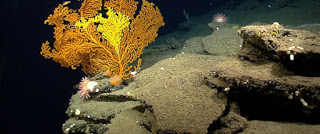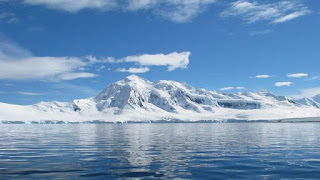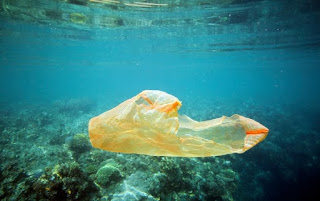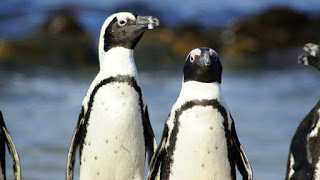1. Private Donation Manifests In Creation of Five Chilean National Parks
 Chile has created five new national parks as part of “a new 17-mile park route that stretches from the southern spine of Chile to Cape Horn.” This was made possible by a generous private land donation made by the late Douglas Tompkins and his wife and partner Kristine McDivitt Tompkins. After founding The North Face and Esprit, they cashed out and used their fortune to purchase some of the most pristine wilderness left on Earth. The new protected areas include miles of wild coastline. The move crowns the environmental legacy of Chilean president Michelle Bachelet, who last year established one of the world’s largest marine protected areas off the coast of Easter Island.
Chile has created five new national parks as part of “a new 17-mile park route that stretches from the southern spine of Chile to Cape Horn.” This was made possible by a generous private land donation made by the late Douglas Tompkins and his wife and partner Kristine McDivitt Tompkins. After founding The North Face and Esprit, they cashed out and used their fortune to purchase some of the most pristine wilderness left on Earth. The new protected areas include miles of wild coastline. The move crowns the environmental legacy of Chilean president Michelle Bachelet, who last year established one of the world’s largest marine protected areas off the coast of Easter Island. —————————————————
2. New England – Deep Coral Protected from Trawlers
 The New England Fishery Management Council voted to protect deep-sea coral in Georges Bank, a fishing ground off the U.S. Atlantic Coast. The move protects more than 25,000 square miles of seafloor from destructive fishing gear that trawls the ocean bottom. Conservation groups applaud the move but wanted stronger protections than those offered by this compromise bill. Georges Bank was a thriving cod fishery for centuries until overfishing and coral-killing bottom trawling led to its collapse in the 1980s.
The New England Fishery Management Council voted to protect deep-sea coral in Georges Bank, a fishing ground off the U.S. Atlantic Coast. The move protects more than 25,000 square miles of seafloor from destructive fishing gear that trawls the ocean bottom. Conservation groups applaud the move but wanted stronger protections than those offered by this compromise bill. Georges Bank was a thriving cod fishery for centuries until overfishing and coral-killing bottom trawling led to its collapse in the 1980s.—————————————————
3. Microplastics in Antarctic Waters
 Microplastics have been discovered in one of the world’s most pristine places: Antarctica. Samples collected near the Antarctic Ice Exclusion Zone during the Turn the Tide on Plastic sailboat race was found to contain four particles per cubic meter of microplastics. Although that number is smaller than those found in waters elsewhere, the discovery is a shocking reminder that plastics have made their way to the most remote corners of our planet.
Microplastics have been discovered in one of the world’s most pristine places: Antarctica. Samples collected near the Antarctic Ice Exclusion Zone during the Turn the Tide on Plastic sailboat race was found to contain four particles per cubic meter of microplastics. Although that number is smaller than those found in waters elsewhere, the discovery is a shocking reminder that plastics have made their way to the most remote corners of our planet.—————————————————
4. Plastic Pollution Increases Coral Disease
 A new study in the journal Science adds plastic garbage to the list of stressors besieging coral reefs. Researchers found that “where plastic was present on reefs around Southeast Asia—home to more than half the world’s coral reefs—the likelihood of seeing one of the key coral-killing diseases rose from 4 to 89 percent.” Fortunately, some nations are acting quickly to curb plastic pollution. “Indonesia, which just declared a ‘garbage emergency’ on the beaches of tourism-dependent Bali, has drawn up a National Action Plan on Marine Plastic Debris to curtail the amount of waste it sends into the ocean.”
A new study in the journal Science adds plastic garbage to the list of stressors besieging coral reefs. Researchers found that “where plastic was present on reefs around Southeast Asia—home to more than half the world’s coral reefs—the likelihood of seeing one of the key coral-killing diseases rose from 4 to 89 percent.” Fortunately, some nations are acting quickly to curb plastic pollution. “Indonesia, which just declared a ‘garbage emergency’ on the beaches of tourism-dependent Bali, has drawn up a National Action Plan on Marine Plastic Debris to curtail the amount of waste it sends into the ocean.” —————————————————
5. Shaken, Not Stirred
 Does news about ocean plastics make you want to reach for a stiff drink? Now, at least, that drink may not come with a plastic stirrer. In one of the world’s first industry-wide moves, the Scotch Whisky Association has “urged its members to phase out plastic straws and stirrers.” The group joins a growing chorus—from the U.K. to Seattle—calling for an end to polluting single-use plastic straws. Need some comic relief with that cocktail? Watch Lonely Whale’s #stopsucking campaignvideo.
Does news about ocean plastics make you want to reach for a stiff drink? Now, at least, that drink may not come with a plastic stirrer. In one of the world’s first industry-wide moves, the Scotch Whisky Association has “urged its members to phase out plastic straws and stirrers.” The group joins a growing chorus—from the U.K. to Seattle—calling for an end to polluting single-use plastic straws. Need some comic relief with that cocktail? Watch Lonely Whale’s #stopsucking campaignvideo.
—————————————————
6. Fishing Bans Help Penguin Chicks
Even modest fishing restrictions can bolster penguin chick survival, according to a new survey off the coast of South Africa. The study provides some of the first evidence that fishing bans can help other marine species, which isn’t surprising, since fish-catching species compete for food and drown in fishing nets. Although penguin chick survival rates rose only 11 percent, “computer simulations show that the fishery closures reduce the risk that these colonies would decline” to numbers that threaten their survival.
Sea Save Foundation is committed to raising awareness of marine conservation. The Week in Review is a team effort produced by the Sea Save staff to provide a weekly summary of the latest in marine research, policy, and news.





